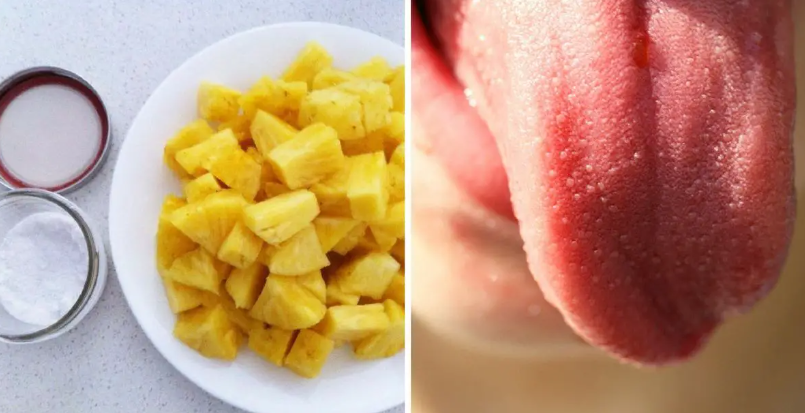Why Does Pineapple Hurt My Mouth? Understanding the Phenomenon
Many people have experienced a peculiar sensation after eating pineapple, commonly known as "pineapple mouth." The tangy and sweet fruit, known for its tropical flavor, can sometimes cause discomfort or irritation in the mouth. In this article, we will delve into the reasons behind this phenomenon and explore the factors that contribute to pineapple's potential mouth irritation. By understanding why pineapple might hurt your mouth, you can make informed choices about consuming this delicious fruit.

Pineapple fruits
I. Bromelain Enzyme
1. What is Bromelain: Pineapple contains an enzyme called bromelain, which is responsible for its unique taste and texture. Bromelain is a mixture of enzymes that break down proteins, and it is found in various parts of the pineapple, including the fruit itself and the stem.
2. Effects on the Mouth: When consumed, bromelain can irritate the sensitive tissues in the mouth. It can cause a tingling or stinging sensation, especially on the tongue or the roof of the mouth. This irritation is more prominent in individuals with sensitive oral tissues.
II. Acidic Nature
1. Citric Acid: Pineapple is naturally acidic due to the presence of citric acid and other organic acids. These acids give pineapple its characteristic tanginess but can also contribute to mouth discomfort.
2. Oral Sensitivity: The acidic nature of pineapple can trigger or exacerbate oral sensitivity in some individuals. People with conditions such as sensitive teeth, canker sores, or acid reflux may be more prone to experiencing discomfort after consuming pineapple.
III. Pineapple Allergy or Sensitivity
1. Allergic Reactions: While relatively rare, some individuals may have an allergic reaction to pineapple. Allergic symptoms can range from mild to severe and may include itching, swelling, hives, or even difficulty breathing. If you suspect an allergic reaction, it is important to seek medical attention.
2. Oral Allergy Syndrome: Another possibility is oral allergy syndrome, where individuals with pollen allergies experience cross-reactivity with certain fruits, including pineapple. This can lead to localized itching or tingling in the mouth after eating pineapple.
IV. Overconsumption and Pineapple Acidity
1. Overeating Pineapple: Consuming excessive amounts of pineapple can intensify mouth discomfort. The combination of bromelain and acidity can be overwhelming for the mouth, causing a more pronounced tingling or burning sensation.
2. Pineapple Ripeness: The ripeness of pineapple can also affect its acidity levels. Riper pineapples tend to be sweeter and less acidic, which may result in a milder or less noticeable mouth irritation compared to unripe or underripe pineapples.

Why does pineapple hurt my mouth?
The phenomenon of pineapple mouth, characterized by mouth irritation after consuming pineapple, can be attributed to various factors such as the bromelain enzyme, pineapple's acidic nature, individual sensitivity or allergies, and overconsumption. While the discomfort is temporary and typically harmless, it is important to be mindful of your own tolerance and oral health. If you experience significant discomfort or suspect an allergic reaction, it is advisable to consult a healthcare professional. Enjoy pineapple in moderation, considering its unique flavors and potential mouth effects, and savor this tropical fruit with awareness and understanding.